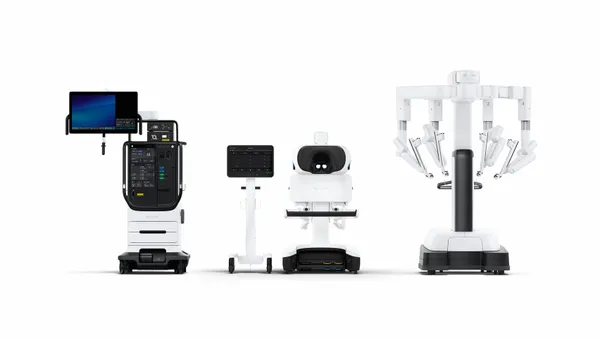Dive Brief:
- Medical devices should be prioritized in global supply chains, trade association AdvaMed wrote in a white paper published on Friday.
- The importance of medical technology in keeping the U.S. population safe, combined with the relatively small size of the sector’s market share and purchasing power, mean the medtech supply chain must be a national priority, the group said.
- The trade group listed semiconductor chips, which have faced a multiyear shortage, as one example where medical device companies have competed with other industries for product.
Dive Insight:
Since the pandemic began, the medtech industry has been challenged by constraints on vital raw materials and inputs, and as AdvaMed CEO Scott Whitaker said in a statement issued with the paper on Friday, “while our market share and purchasing power are dwarfed by other manufacturing sectors, no one would argue against the importance of delivering lifesaving technologies.”
The lobbying group explained the industry’s outsized importance in the white paper. “Whether medtech manufacturers are vying for limited raw materials, parts and components, transport space or shipping lanes, the medtech ecosystem, and healthcare products writ large, must be prioritized due to their direct linkage to patient outcomes and resilient healthcare system,” AdvaMed wrote.
The trade group offered six recommendations for supply chain resilience:
- “The immediate and long-term prioritization” of medical devices for critical components such as semiconductor chips and medical grade packaging.
- Greater diversification of supply chains to reduce over-reliance on individual markets for manufacturing or supply.
- A “fast pass” or “green lane” system for national and international transportation of medical devices.
- Public-private partnerships, like those formed during the pandemic, to ensure the industry is able to move quickly in future crises.
- A supply chain coordination office in the U.S. Department of Commerce to identify the upstream needs of critical sectors and present disruptions.
- Workforce training, including partnerships between industry and academia, for the next generation of medtech manufacturers in the U.S.
The Food and Drug Administration and Congress have also been discussing how to better prepare for future pandemics. FDA Commissioner Robert Califf said in a May statement that the agency established new programs during the pandemic that can help in the future, including monitoring the availability of medical products using data from a variety of sources, predicting supply chain vulnerabilities, and preventing or mitigating shortages with shelf-life extensions and risk management plans from manufacturers.
Medical device-makers are no longer required to notify the FDA about manufacturing interruptions or discontinuances since the public health emergency has expired, but the agency still encourages them to continue reporting on a voluntary basis to help prevent disruptions to the supply of critical devices.














